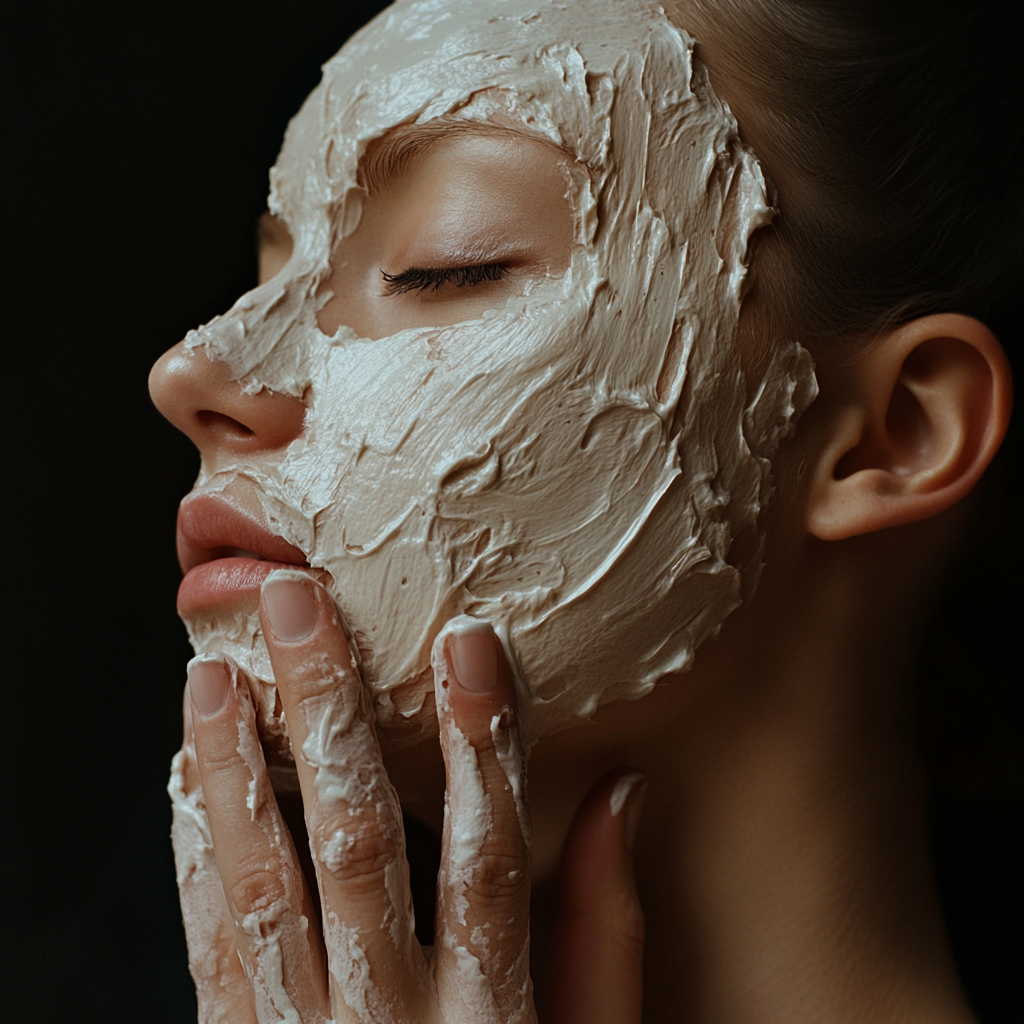There are so many things in the world that we may admire or even get inspired by, but there’s one main thing we may want to fall in love with before we start noticing the beauty of other things. It’s our own reflection in the mirror. Among all the numerous recipes for conjuring up self-love within ourselves, psychologists advise us to never compare ourselves to others and stop caring about other people’s opinions. Actress and producer Lena Dunham knows a lot about cultivating love for her own body despite all the criticism she faced, and she happily shares her journey with us all.
Lena Dunham doesn’t accept the term “body positivity,” and here’s why.



Actress and writer Lena Dunham has recently added another string to her bow and collaborated with the brand 11 Honoré to create a plus-size clothing collection. But the very term “plus size” frustrates Lena, and so is the term “body positivity.” In one of her Instagram posts, she explains that she feels more “body tolerant” than “body positive.”
In her interview, Dunham said, “The thing that’s complicated about the body-positive movement is it can be for the privileged few who have a body that looks the way people want to feel positive. We want curvy bodies that look like Kim Kardashian has been up-sized slightly. We want big beautiful butts and big beautiful breasts and no cellulite and faces that look like you could smack them onto thin women.”
Dunham has a very special relationship with her own body.



Dunhams path to self-love started with a decade-long journey with endometriosis. Since she started her own fight against it, she has been candidly sharing how it influenced both her emotional health and her relationship with her own body image. In her Instagram post, she emotionally described how she fluctuated between loving her body and the opposite.
She wrote, “Ya know when you’re home alone, and you realize you’d be happier in a hot lil’ onesie than your ketchup and cat food stained pajamas? And it’s not about a boy or a photo shoot or a weight loss before-and-after, it’s just for the feeling of glee you get from dressing your one and only corporeal form in pleasing fabrics, the unique pleasure of admiring the twists and turns of the body that loves the heck out of you even when you don’t love it.”
Dunham is powerfully addressing all people who come to her page with criticism.



In 2021, Dunham tied the knot with musician Luis Felber. It was such a darling event for her that she wore 3 wedding dresses to marry her love and shared the photos on her Instagram. However, she started getting some “gnarly” comments in her feed from people who commented on her body and appearance. The actress didn’t hesitate for a minute to address them with a powerful message.
She wrote, “One narrative I take issue with, largely because it’s a story I don’t want other women, other people, to get lodged in their heads, is that I should somehow be criticized because my body has changed since I was last on television. […] But lastly, when will we learn to stop equating thinness with health/happiness?”
Dunham’s powerful message can be echoed in the hearts of many.


For all people who have ever hesitated about embracing their body image, Dunham has some simple yet wise advice. She says, “Of course weight loss can be the result of positive change in habits, but guess what? So can weight gain. The pics I’m being compared to are from when I was with an undiagnosed illness. In the last 4 years, I’ve begun my life as someone who aspires toward health and not just achievement.
These changes have allowed me to be the kind of sister/friend/daughter that I want to be and yes — meet my husband (who, by the way, doesn’t recognize me in those old photos because he sees how dimmed my light was). I say this for any other person whose appearance has been changed with time, illness, or circumstance — it’s okay to live in your present body without treating it as transitional. I am, and I’m really enjoying it. Love you all.”
Do you find Lena Dunham’s example inspiring? What do you love the most about your appearance?
Preview photo credit Steve Granitz / WireImage / Getty Images, lenadunham / Instagram
Casal intitulado em avião exige que eu cubra meu rosto porque minhas cicatrizes os “assustam” — comissária de bordo e capitão os colocam em seu devido lugar

Quando Carla embarca em um voo, suas cicatrizes em processo de cura se tornam alvo do desgosto de um casal cruel, dando início a um tenso confronto na cabine. O que começa como resistência silenciosa logo se intensifica quando o casal exige ação, forçando a tripulação a intervir.
O aeroporto parecia mais frio do que o normal, ou talvez fosse só o jeito como as pessoas olhavam. Eu mantive minha cabeça baixa, segurando meu cartão de embarque como se fosse a única coisa me segurando.

Uma mulher preparada para embarcar em um avião | Fonte: Pexels
A cicatriz no meu rosto ainda estava se curando, mas já parecia ter se esculpido em minha identidade. As pessoas não me viam mais, elas viam a cicatriz primeiro.
O ferimento aconteceu há um mês em um acidente de carro. Eu estava como passageiro e, quando o airbag foi acionado, um caco de vidro cortou fundo meu rosto. Os médicos agiram rápido, costurando-me com precisão, mas não conseguiram evitar que a linha irregular se formasse.

Médicos no trabalho | Fonte: Pexels
Meu dermatologista chamou de “tecido cicatricial precoce”, cru, brilhante e vermelho. Ele se estendia de uma polegada acima da minha linha do cabelo, descendo pela minha sobrancelha, cortando minha bochecha e terminando perto da minha linha do maxilar. Parte da minha sobrancelha nunca mais voltaria a crescer, e minha bochecha tinha uma depressão onde o corte tinha sido mais profundo.
Por semanas, meu rosto ficou coberto de bandagens. No começo, eu não conseguia suportar olhar no espelho. Mas, conforme as feridas fechavam e as bandagens eram retiradas, não tive escolha a não ser encarar.

Uma mulher com bandagens cobrindo o rosto | Fonte: Midjourney
Meus amigos tentaram me animar, chamando-o de foda, até mesmo sexy de uma forma misteriosa. Eu tentei acreditar neles, mas era difícil quando estranhos olhavam ou desviavam o olhar muito rápido.
O processo de cura foi lento e desconfortável. Todas as manhãs, eu aplicava os cremes e pomadas que o dermatologista recomendava, garantindo que a pele permanecesse limpa e hidratada.

Uma mulher com creme no rosto | Fonte: Midjourney
Mas nenhuma quantidade de cuidado poderia mudar a aparência brilhante e lisa ou as linhas vermelhas ásperas que pareciam gritar por atenção. Eu sabia que elas desapareceriam com o tempo, mas o pensamento de que elas nunca desapareceriam completamente pesava no meu peito.
Agora, enquanto eu caminhava para meu assento no avião, eu podia sentir cada par de olhos em mim. Eu me joguei no assento da janela, meu coração disparado.

Uma mulher se acomodando em seu assento na janela | Fonte: Pexels
Pelo menos embarquei cedo, evitando as multidões. Coloquei meus fones de ouvido, deixando a música abafar minhas preocupações. Fechando os olhos, rezei por um voo tranquilo e sem incidentes.
Acordei com vozes. Altas.
“Você só pode estar brincando comigo”, resmungou um homem. “Esses são os nossos assentos?” Seu tom era cortante, como se estivesse bravo com o mundo.

Um close-up de um homem mal-humorado | Fonte: Pexels
“Fileira 5B e 5C”, respondeu uma voz feminina, cortante e impaciente. “Está tudo bem. Apenas sente-se.”
O casal se acomodou nos assentos ao meu lado com muita bufada e arrastada. Mantive meus olhos fechados, esperando que me deixassem em paz. O homem tinha uma voz áspera e grave. “Eu não acredito nisso. Pagamos por este voo, e é isso que ganhamos? Assentos de última hora ao lado de —” Ele parou.

Um casal mal-humorado em um avião | Fonte: Midjourney
“Ao lado de quê?” a mulher perguntou, sua voz aumentando. “Oh.” Senti seus olhos em mim. Minha pele formigou. “Você deve estar brincando.”
Fiquei parado, meu coração batendo forte. Por favor, pare de falar.
“Ei, moça!”, o homem latiu. Abri os olhos lentamente e me virei para ele. Ele estremeceu, então fez uma careta. “Você não pode cobrir isso ou algo assim?”

Jovem com cicatrizes no rosto | Fonte: Midjourney
Pisquei, atordoado demais para falar.
“Tom”, a mulher sibilou, cobrindo o nariz com a manga do suéter. “Isso é nojento. Como eles deixaram ela embarcar daquele jeito?”
“Exatamente!” Tom se inclinou para frente, apontando um dedo para mim. “Este é um lugar público, sabia? As pessoas não precisam ver… isso.”

Um casal enojado | Fonte: Midjourney
Senti meu rosto corar. As palavras ficaram presas na minha garganta. Eu queria explicar, dizer a eles que não era algo que eu pudesse evitar, mas nenhum som saiu.
“Você vai ficar sentado aí?”, disse a mulher, com a voz aguda e nasal. “Inacreditável.”
Tom se inclinou para o corredor e acenou para uma aeromoça. “Ei! Você pode fazer alguma coisa sobre isso? Minha namorada está surtando.”

Uma comissária de bordo na ilha | Fonte: Unsplash
A aeromoça se aproximou, sua expressão calma, mas séria. “Algum problema, senhor?”
“É, tem um problema”, disse Tom. “Olhe para ela!” Ele apontou o polegar na minha direção. “Está chateando minha namorada. Você pode movê-la para trás ou algo assim?”
Os olhos da atendente se voltaram para mim. Seu rosto se suavizou por um momento antes de ela se virar de volta para o homem. “Senhor, todos os passageiros têm direito aos seus assentos. Há algo em que eu possa ajudá-lo?”

Comissária de bordo falando com os passageiros | Fonte: Unsplash
“Eu acabei de te contar!” Tom retrucou. “Ela está sentada ali desse jeito. É nojento. Ela deveria ter que cobrir ou se mudar.”
A mulher acrescentou: “Não consigo nem olhar para ela. Vou vomitar.”
A aeromoça se endireitou, seu tom frio e firme. “Senhor, senhora, vou ter que pedir para vocês baixarem a voz. Esse tipo de comportamento não é aceitável.”

Um homem de meia idade irritado falando com uma aeromoça em um avião | Fonte: Midjourney
Tom zombou. “Comportamento? E o comportamento dela? É falta de consideração! Ela está assustando as pessoas!”
O atendente o ignorou e se agachou levemente em minha direção. “Senhorita, você está bem?”
Assenti rigidamente, mal conseguindo conter as lágrimas.
A atendente se levantou novamente. “Eu já volto”, ela disse, sua voz firme. “Com licença por um momento.”

Uma comissária de bordo confrontando um passageiro irritado | Fonte: Midjourney
Enquanto ela caminhava em direção à cabine, Tom se recostou no assento, resmungando baixinho. A mulher ao lado dele cruzou os braços e olhou feio para o corredor. Eu olhei para a janela, desejando poder desaparecer.
A cabine estava silenciosa, exceto pelo zumbido baixo dos motores. Mantive meus olhos no encosto do assento à minha frente, tentando não chorar. Algumas fileiras atrás, alguém sussurrou. Imaginei que estivessem falando de mim.

Uma mulher triste com uma cicatriz | Fonte: Midjourney
O interfone estalou. A voz do capitão veio, calma, mas firme.
“Senhoras e senhores, aqui é o capitão falando. Fomos informados sobre um comportamento que não condiz com o ambiente respeitoso que buscamos manter neste voo. Deixe-me lembrar a todos que assédio ou discriminação de qualquer tipo não serão tolerados. Por favor, tratem seus companheiros de viagem com dignidade.”

Os pilotos do avião | Fonte: Pexels
O anúncio provocou uma onda na cabine. Cabeças se viraram, passageiros se mexendo em seus assentos enquanto olhavam para a fileira 5. Avistei alguém do outro lado do corredor balançando a cabeça em desaprovação, e meu estômago se revirou.
A comissária de bordo retornou, de pé, alta e composta. Ela se inclinou para nossa fileira e se dirigiu diretamente ao casal. “Sr. e Sra., preciso que vocês se movam para os assentos 22B e 22C na parte de trás do avião.”

Uma comissária de bordo falando com passageiros | Fonte: Midjourney
O homem pareceu atordoado. “O quê?” ele gritou. “Não vamos nos mover!”
“Senhor”, disse a aeromoça com firmeza, “isso não é negociável. Seu comportamento interrompeu o voo, e precisamos garantir um ambiente confortável para todos os passageiros.”
“Isso é ridículo”, a mulher retrucou, apertando o suéter mais apertado ao redor do corpo. “Por que somos nós que estamos sendo punidos? Ela é quem está causando o problema!”

Uma jovem mulher gritando com comissários de bordo | Fonte: Midjourney
A aeromoça não vacilou. “Senhora, seus novos assentos estão prontos. Por favor, reúna seus pertences.”
O homem franziu o cenho, seu rosto vermelho de raiva. “Isso é loucura”, ele murmurou, puxando sua bolsa de debaixo do assento. A mulher o seguiu, resmungando alto enquanto pegava sua bolsa. Passageiros próximos observavam silenciosamente, suas expressões variando de desaprovação a satisfação silenciosa.

Um casal insatisfeito caminhando | Fonte: Midjourney
Enquanto o casal se arrastava pelo corredor, alguém bateu palmas. Depois outro. O som aumentou, espalhando aplausos por toda a cabine. Mordi o lábio, tentando conter as lágrimas. Não de vergonha dessa vez, mas do estranho e inesperado conforto do gesto.
A aeromoça se virou para mim, sua expressão suave. “Senhorita, quero me desculpar pelo que aconteceu. Ninguém deveria ter que passar por isso.”

Uma simpática aeromoça conversando com uma mulher | Fonte: Midjourney
Eu assenti, sem confiar na minha voz.
“Temos um assento vago na classe executiva”, ela continuou. “Gostaríamos de movê-lo para lá como um gesto de boa vontade. Tudo bem?”
Hesitei. “Não quero causar problemas.”
“Você não está causando problemas”, ela disse, sua voz gentil. “Por favor. Deixe-nos cuidar de você.”

Uma mulher insegura em um avião | Fonte: Midjourney
Eu assenti e murmurei: “Obrigado.”
Enquanto eu me acomodava em meu novo assento, ela me trouxe uma xícara de café e um pequeno pacote de biscoitos, então me deixou relaxar. Olhei pela janela, as nuvens um suave borrão branco contra o azul infinito. Minha respiração desacelerou, o nó em meu peito se afrouxou.

Uma mulher com um livro e um café em um assento de janela | Fonte: Freepik
Pela primeira vez no que pareceram semanas, eu me deixei chorar. Lágrimas silenciosas deslizaram pelo meu rosto. Pensei nas palavras dos meus amigos, como eles me disseram que eu ainda era eu, com cicatrizes e tudo. “Você ainda é linda”, um deles disse. “Você é simplesmente feroz agora também.”
Olhei pela janela novamente. As nuvens pareciam infinitas, estendendo-se até o horizonte. Minhas lágrimas pararam. Respirei fundo, o ar enchendo meus pulmões como uma promessa.

Uma mulher olhando para o seu telefone em um avião | Fonte: Pexels
Enquanto o avião planava, senti algo que não sentia há semanas: esperança.
Gostou desta história? Considere conferir esta : Minha sogra é obsessivamente organizada, mas quando ela começou a carregar suas toalhas e lençóis para lavar na minha casa toda semana, algo não parecia certo. Fiquei irritado e sabia que ela estava escondendo algo. Mas o que descobri ao voltar para casa mais cedo um dia me deixou abalado.
Este trabalho é inspirado em eventos e pessoas reais, mas foi ficcionalizado para fins criativos. Nomes, personagens e detalhes foram alterados para proteger a privacidade e melhorar a narrativa. Qualquer semelhança com pessoas reais, vivas ou mortas, ou eventos reais é mera coincidência e não intencional do autor.
O autor e a editora não fazem nenhuma reivindicação quanto à precisão dos eventos ou à representação dos personagens e não são responsáveis por nenhuma interpretação errônea. Esta história é fornecida “como está”, e quaisquer opiniões expressas são as dos personagens e não refletem as opiniões do autor ou da editora.



Leave a Reply